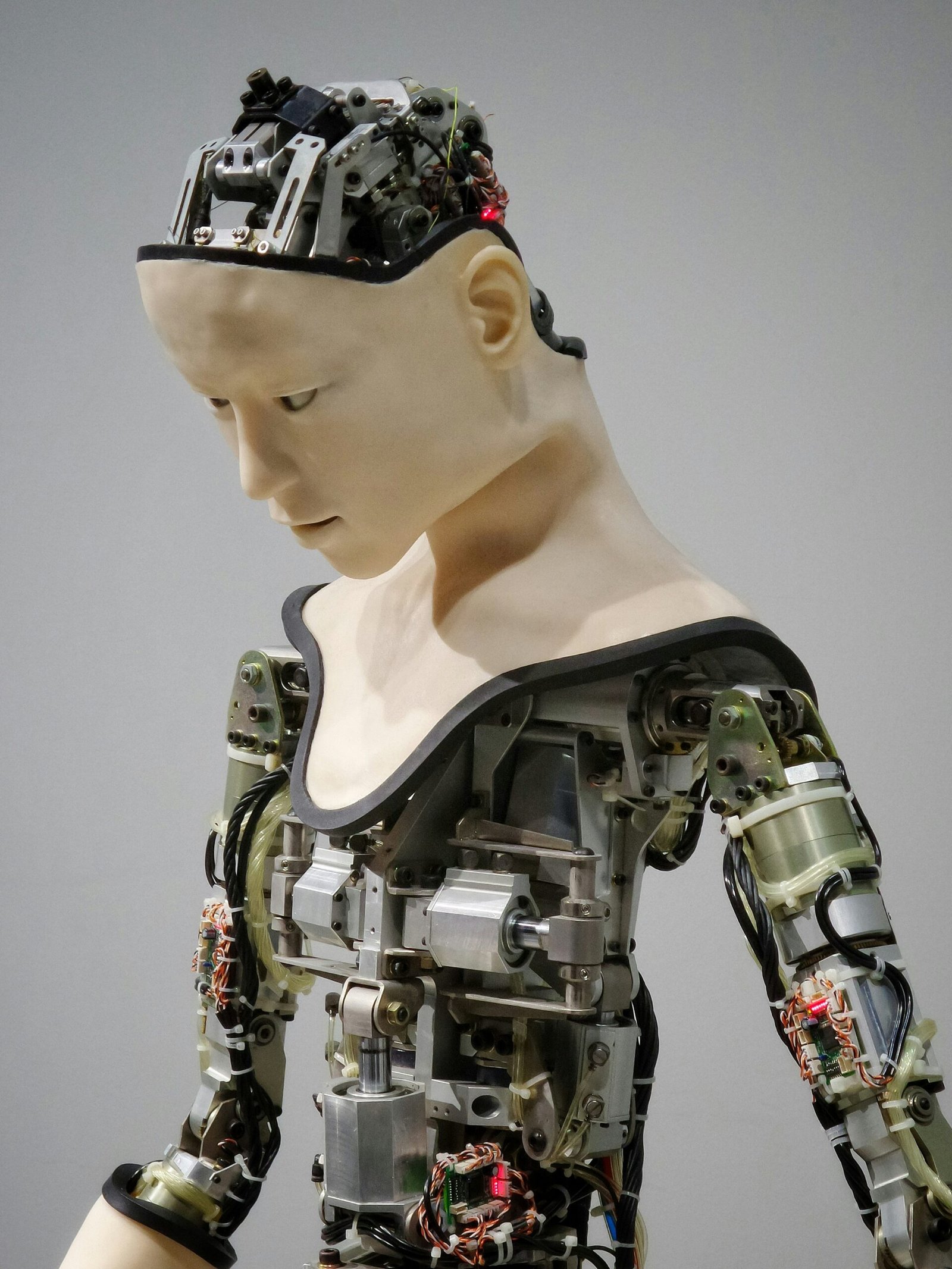The Ethical Implications of Advanced Technology: Discussing Autonomous Weapons, Genetic Engineering, and Privacy Concerns

In an era where technology permeates every aspect of our lives, the rapid advancement in various fields such as artificial intelligence (AI), biotechnology, and data science presents both unparalleled opportunities and significant ethical dilemmas. As we stand on the precipice of a new technological age, it becomes crucial to critically evaluate the ethical implications of these advancements. This blog delves into three key areas where technology’s intersection with ethics is most pronounced: autonomous weapons, genetic engineering, and privacy concerns.
1. Autonomous Weapons: The Moral Dilemma of Lethal AI
Autonomous weapons—often referred to as “killer robots”—are systems that can select and engage targets without human intervention. These weapons are powered by AI, enabling them to make decisions in real-time on the battlefield. While the idea of reducing human casualties in war by using machines may seem appealing, the ethical implications of autonomous weapons are deeply troubling.
a. Accountability and Responsibility
One of the most pressing ethical concerns is accountability. In traditional warfare, the chain of command is clear: soldiers follow orders, and their actions are subject to human oversight. With autonomous weapons, however, determining accountability becomes murky. If a machine mistakenly targets civilians, who is responsible? The programmer who wrote the code, the military officer who deployed the system, or the machine itself? This diffusion of responsibility poses a significant ethical challenge.
b. Decision-Making in Life-and-Death Situations
Autonomous weapons raise the question of whether machines should be given the authority to make life-and-death decisions. Human soldiers, despite their flaws, possess a sense of morality, empathy, and judgment that machines lack. They can consider the broader context, exercise discretion, and sometimes choose not to kill. Machines, on the other hand, operate based on algorithms and predefined rules, which may not account for the nuances of every situation. This lack of moral reasoning in machines could lead to catastrophic consequences.
c. The Risk of Proliferation and Arms Race
The development of autonomous weapons could trigger a new arms race, with nations vying to create more advanced and deadly systems. The proliferation of such technology could lead to widespread use in conflicts, increasing the risk of unintended escalations. Moreover, non-state actors could potentially acquire these weapons, using them for terrorism or other malicious purposes. The global security implications are profound, and the ethical responsibility to prevent such an outcome falls on the international community.
d. Violation of International Humanitarian Law
Autonomous weapons challenge the principles of international humanitarian law (IHL), particularly the principles of distinction and proportionality. IHL requires that combatants distinguish between military targets and civilians and that any military action be proportionate to the military advantage gained. Autonomous weapons, lacking the ability to fully understand and interpret complex human scenarios, may fail to adhere to these principles, leading to violations of IHL and potentially committing war crimes.
2. Genetic Engineering: The Power to Shape Life
Genetic engineering is another field where technological advancements have sparked intense ethical debates. The ability to modify the genetic makeup of organisms, including humans, holds immense potential for medicine, agriculture, and beyond. However, the power to alter life at a fundamental level also raises profound ethical questions.
a. The Promise and Perils of Gene Editing
CRISPR-Cas9, a revolutionary gene-editing technology, has made it possible to edit DNA with unprecedented precision. This technology has the potential to cure genetic diseases, enhance crops, and even prevent inherited disorders. However, the ease with which CRISPR can be used also raises concerns about its misuse. The possibility of creating “designer babies,” where parents select specific traits for their children, poses significant ethical dilemmas. Should we have the right to shape the genetic future of our offspring? What are the long-term consequences of altering the human gene pool?
b. The Ethics of Human Enhancement
Beyond treating diseases, genetic engineering opens the door to human enhancement. This could involve enhancing physical abilities, cognitive functions, or even extending lifespan. While such advancements could lead to significant improvements in human well-being, they also raise questions about fairness and equity. If only the wealthy can afford genetic enhancements, it could exacerbate existing social inequalities, creating a genetic divide between the “enhanced” and the “unenhanced.”
c. The Risk of Unintended Consequences
Genetic engineering is a powerful tool, but it is not without risks. Unintended consequences, such as off-target effects where unintended genes are altered, could have serious implications for both individuals and ecosystems. Moreover, the long-term effects of genetic modifications are not fully understood, raising concerns about the potential for unforeseen negative outcomes. The ethical responsibility to proceed with caution is paramount, particularly when the changes being made are irreversible and could impact future generations.
d. The Moral Status of Genetically Modified Organisms (GMOs)
The use of genetic engineering in agriculture has led to the creation of genetically modified organisms (GMOs), which are crops and animals with altered DNA to enhance desirable traits such as resistance to pests or increased nutritional value. While GMOs have the potential to address global food security challenges, they also raise ethical concerns. Critics argue that tampering with the natural genetic makeup of organisms is inherently wrong and that the long-term environmental impacts of GMOs are not fully understood. Additionally, the control of GMO technology by a few large corporations raises questions about monopolization and the ethical implications of patenting life forms.
3. Privacy Concerns in the Digital Age: The Ethical Battle Over Data
In today’s interconnected world, where data is the new currency, privacy has become a paramount concern. Advances in technology, particularly in data collection, storage, and analysis, have transformed the way we live and interact with the world. However, these advancements have also led to significant ethical challenges regarding privacy.
a. The Erosion of Privacy in the Digital Age
With the proliferation of smartphones, social media, and the Internet of Things (IoT), vast amounts of personal data are being collected, often without our explicit consent. This data includes everything from our location and browsing habits to our health records and financial information. The erosion of privacy in the digital age raises critical ethical questions about the right to control our personal information and the potential for misuse by corporations, governments, and hackers.
b. The Ethical Dilemma of Surveillance
Governments and corporations increasingly rely on surveillance technologies, such as facial recognition and data mining, to monitor and track individuals. While these technologies can enhance security and streamline services, they also pose significant ethical concerns. The widespread use of surveillance can lead to a loss of autonomy and the potential for abuse, particularly in authoritarian regimes. The ethical dilemma lies in balancing the benefits of surveillance with the protection of individual rights and freedoms.
c. The Commodification of Personal Data
In the digital economy, personal data has become a valuable commodity. Companies collect and analyze data to target advertisements, influence consumer behavior, and generate profits. This commodification of personal data raises ethical concerns about consent and exploitation. Many users are unaware of the extent to which their data is being used and monetized, leading to questions about transparency and the ethical responsibilities of tech companies.
d. The Impact of Big Data on Privacy
Big data analytics, powered by AI and machine learning, has the potential to drive innovation and improve decision-making across various sectors. However, the use of big data also raises ethical concerns about privacy. The ability to analyze and predict behavior based on vast amounts of data can lead to discrimination, bias, and violations of privacy. For example, predictive policing algorithms, which use data to predict crime hotspots, have been criticized for perpetuating racial biases and infringing on civil liberties. The ethical challenge is to ensure that big data is used in a way that respects privacy and promotes fairness.
4. Ethical Frameworks for Addressing Advanced Technology
To navigate the ethical challenges posed by advanced technology, it is essential to develop robust ethical frameworks that can guide decision-making. These frameworks should be grounded in principles such as respect for human dignity, fairness, and transparency.
a. The Precautionary Principle
The precautionary principle advocates for caution in the face of uncertainty. When the potential risks of a technology are not fully understood, the precautionary principle suggests that it is better to err on the side of caution. This principle is particularly relevant in the context of autonomous weapons and genetic engineering, where the stakes are high, and the consequences of failure could be catastrophic.
b. Ethical AI and Responsible Innovation
In the development of AI and other advanced technologies, there is a growing movement towards ethical AI and responsible innovation. This approach emphasizes the importance of transparency, accountability, and inclusivity in the design and deployment of technology. By involving diverse stakeholders, including ethicists, policymakers, and affected communities, in the decision-making process, we can ensure that technological advancements align with ethical values and promote the common good.
c. International Cooperation and Regulation
Given the global nature of advanced technology, international cooperation and regulation are essential. Autonomous weapons, genetic engineering, and data privacy are all issues that transcend national borders. To address these challenges effectively, there must be international agreements and standards that set clear ethical guidelines and ensure compliance. For example, efforts to ban autonomous weapons through international treaties, such as the Campaign to Stop Killer Robots, are critical in preventing the unchecked proliferation of lethal AI.
d. Public Engagement and Ethical Literacy
Finally, public engagement and ethical literacy are crucial in shaping the future of technology. As technology becomes increasingly integrated into our lives, it is essential that the public is informed and engaged in discussions about its ethical implications. Ethical literacy involves understanding the ethical dimensions of technology and being able to critically evaluate its impact on society. By fostering a culture of ethical awareness and dialogue, we can ensure that technological advancements serve the interests of humanity as a whole.
Conclusion
The ethical implications of advanced technology are complex and multifaceted, touching on fundamental questions






